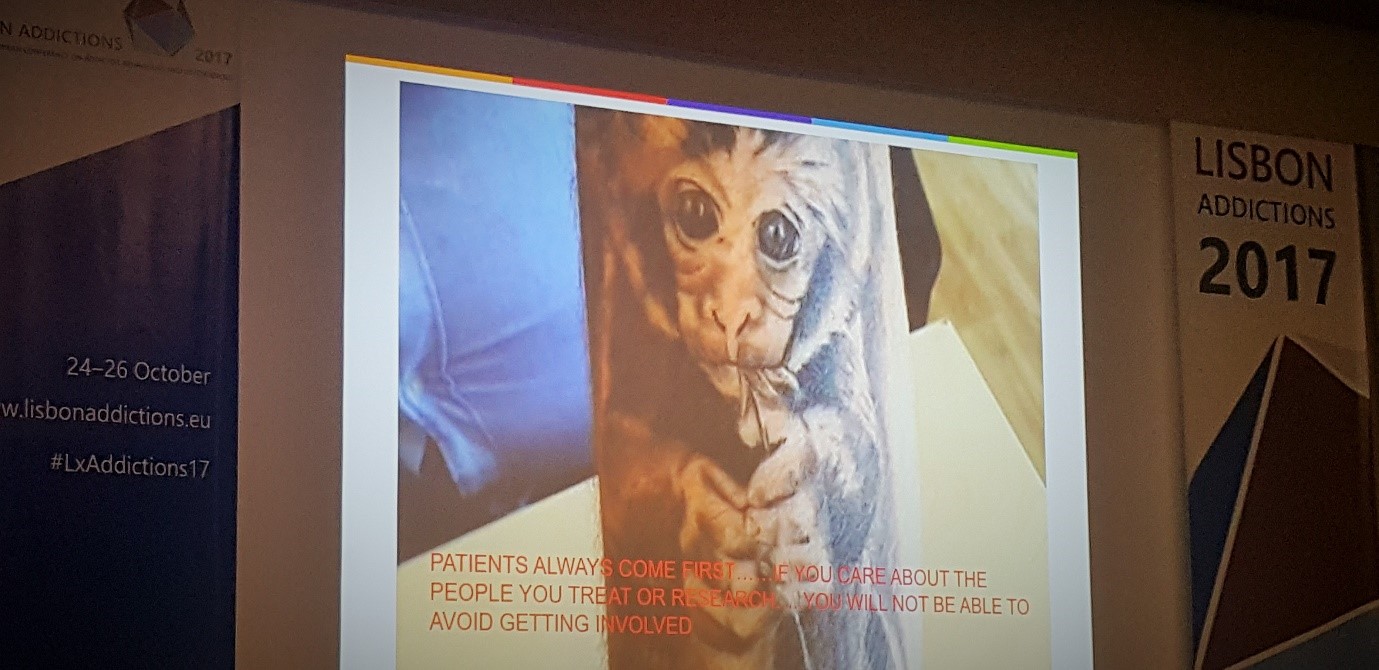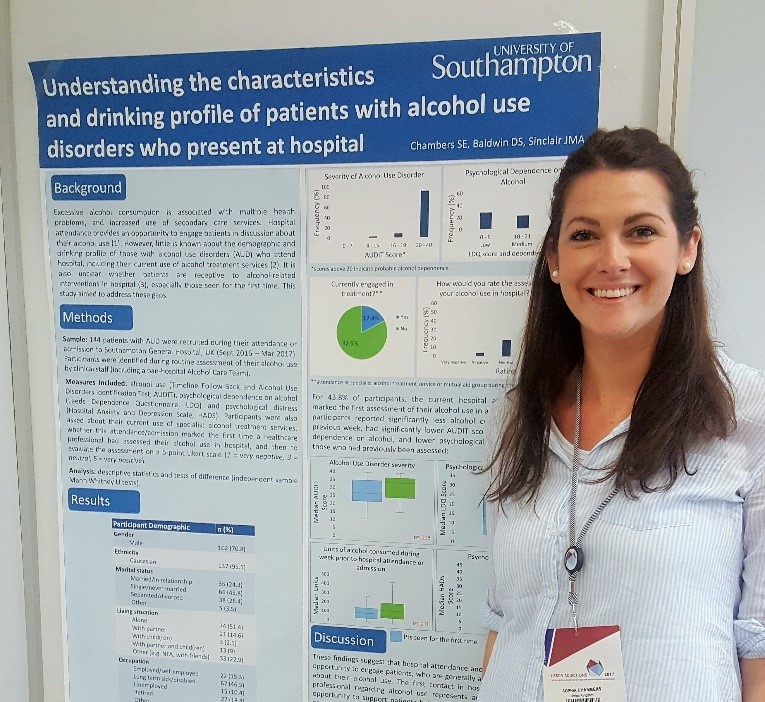
Patients Come First – A report from Lisbon Addictions 2017

Photo taken from: Dr Henrietta Bowden-Jones (inaugural session, Tuesday 24th October)
The second European Conference on Addictive Behaviours and Dependences 2017 conference, held in Lisbon, promised a lively union of 1200+ delegates from over 70 countries to share knowledge, debate and discuss ideas, and network – and it did not disappoint. Delegates were spoilt for choice with a diverse range of plenary, parallel, structured and poster sessions; with over 200 individual presentations on offer per day, it is impossible to discuss even a fraction of material covered within this report.
However, with the conference taking place in Lisbon, an apt place to start is with some advice offered by the president of the Parliamentary Commission on Education and Science in Portugal, Alex Quintanilha. During his talk in one of the inaugural sessions on day one, Alex reflected on the impact science can have in shaping and influencing policy, referencing the impressive results seen in Portugal following adoption of their 1999 drug strategy, to which he contributed. Not only did Alex remind us of the need to be “bold and risky”, and work to develop trust among numerous stakeholders, he reiterated Proust’s (1922) dictum that “the voyage of discovery has less to do with finding new landscapes than looking with fresh eyes”.
The need to look with “fresh eyes” was restated in many talks throughout the conference, but one mechanism for doing this struck me as being particularly important: keeping patients (or ‘service users’) at the heart of what we do.
Although this seems an obvious statement, many presenters highlighted that in practice, researchers often fail to involve patients in key stages of their research. The session “Innovations In Practice” provided a great space to raise some of these issues and offered examples of projects that really worked to build the bridge between research and practice; one fantastic example, presented by Dr Maximilian von Heyden, is the REBOUND project, a school-based drug prevention programme developed in Europe (see Kröninger-Jungaberle et al., 2015).
Another example of excellent practice included the discussion of “science cafes” which have been set up across Portugal for scientists, service users, lay people and policy makers to meet and discuss ideas and knowledge, and shape the research agenda.
However, as Dr Lucy Webb noted, it is often difficult for people from very different realities, as researchers/patients/other stakeholders often are, to understand each other and work together effectively. Her talk about the use of co-productive methodologies provided an inspiring framework in which service users and communities can be supported by academic partners to address the research questions they want answering.
 In sum, the LxAddictions 2017 conference provided an excellent platform to discuss key issues in our field and served as a helpful, but often forgotten, reminder that as scientists we need to actively work with the people our research seeks to represent to ensure their expertise is counted.
In sum, the LxAddictions 2017 conference provided an excellent platform to discuss key issues in our field and served as a helpful, but often forgotten, reminder that as scientists we need to actively work with the people our research seeks to represent to ensure their expertise is counted.
Finally, I would like to thank the Society for the Study of Addiction for their financial support which enabled me to attend and present a poster at the conference.
References:
Kröninger-Jungaberle, Henrik, et al. “REBOUND: A media-based life skills and risk education programme.” Health Education Journal. 2015; 74: 705-719.
October 2017
The opinions expressed in this post and podcast reflect the views of the author(s) and do not necessarily represent the opinions or official positions of the SSA.
The SSA does not endorse or guarantee the accuracy of the information in external sources or links and accepts no responsibility or liability for any consequences arising from the use of such information.